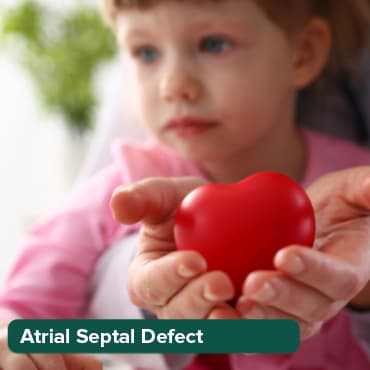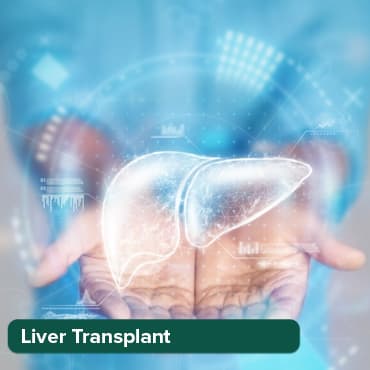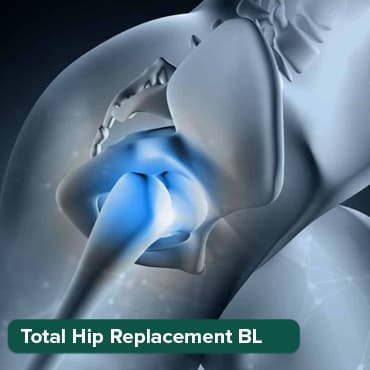
Brain Health: Why Middle Eastern Patients Seek Neurological Care in Thailand
29 Sep, 2023
 Healthtrip Team
Healthtrip TeamIntroduction
In recent years, Thailand has emerged as a leading destination for medical tourism, attracting patients from all around the world seeking high-quality healthcare at competitive prices. One notable trend is the increasing number of Middle Eastern patients seeking neurological care in Thailand. This article explores the reasons behind this growing phenomenon and why Thailand has become a preferred choice for individuals in the Middle East looking to maintain or improve their brain health.
A. The Rise of Medical Tourism in Thailand
Medical tourism in Thailand has been on the rise for the past two decades. The country boasts state-of-the-art hospitals, internationally-trained medical professionals, and competitive pricing for various medical procedures. Patients from all over the world, including the Middle East, are flocking to Thailand to access high-quality healthcare services that are often more affordable than in their home countries.
Transform Your Beauty, Boost Your Confidence
Find the right cosmetic procedure for your needs.

We specialize in a wide range of cosmetic procedures

B. The Middle Eastern Connection
The Middle East has a growing population with various healthcare needs, including neurological disorders. While many Middle Eastern countries have made significant strides in healthcare infrastructure and services, some patients still prefer to seek medical treatment abroad, mainly due to the following reasons:
1. World-Class Medical Facilities:
Thailand is home to several internationally-accredited hospitals and clinics that offer advanced neurological care. These facilities are equipped with cutting-edge technology, ensuring accurate diagnosis and effective treatment options for patients.
2. Highly-Skilled Specialists:
Thai healthcare professionals, including neurologists and neurosurgeons, undergo rigorous training and often receive education and training abroad, including in the United States and Europe. This ensures that patients receive expert care from experienced specialists.
3. Cost-Effective Healthcare:
One of the most significant attractions for Middle Eastern patients is the cost-effectiveness of medical procedures in Thailand. Even with travel and accommodation expenses, many find that they can access top-quality healthcare in Thailand at a fraction of the cost they would incur in their home countries.
4. English Proficiency:
Many healthcare professionals in Thailand are fluent in English, making it easier for Middle Eastern patients to communicate their concerns and understand their treatment plans.
5. Cultural Sensitivity:
Thailand is renowned for its warm and hospitable culture. Middle Eastern patients often find the Thai people to be welcoming and respectful of their cultural and religious beliefs, creating a comfortable and supportive environment during their medical journey.
Most popular procedures in India
Atrial septal defect
Upto 80% off
90% Rated
Satisfactory

Coronary Angiogram a
Upto 80% off
90% Rated
Satisfactory

Coronary Angiogram C
Upto 80% off
90% Rated
Satisfactory

Liver Transplant
Upto 80% off
90% Rated
Satisfactory

Total Hip Replacemen
Upto 80% off
90% Rated
Satisfactory

C. Common Neurological Conditions Treated in Thailand
Middle Eastern patients seeking neurological care in Thailand often come for the diagnosis and treatment of various conditions, including:
- Epilepsy
- Stroke
- Multiple Sclerosis
- Parkinson's Disease
- Brain Tumors
- Neurodegenerative Disorders
While Thailand's rise as a neurological care destination for Middle Eastern patients is impressive, it's important to acknowledge some practical considerations for those considering seeking medical treatment abroad:
- Research and Planning: Before embarking on a medical journey to Thailand, patients should conduct thorough research. They should verify the credentials of the healthcare facility and the specialist they intend to see. Additionally, understanding the visa requirements and planning for accommodations and transportation are crucial steps in making the process smooth.
- Medical Tourism Agencies: Some patients opt to use medical tourism agencies that specialize in coordinating healthcare trips. These agencies can help with logistical arrangements, including booking appointments, travel, and accommodation. However, it's essential to choose a reputable agency to ensure a positive experience.
- Communication: Effective communication between patients and healthcare providers is vital. Patients should ensure that their medical records, including test results and imaging, are adequately translated and available to the treating physicians in Thailand. This helps in accurate diagnosis and treatment planning.
- Cultural Considerations: Patients should also be aware of the cultural differences between their home country and Thailand. While Thai culture is generally welcoming and respectful, understanding and respecting local customs and traditions can enhance the overall experience.
- Post-Treatment Care: After receiving medical treatment in Thailand, patients may need to return to their home countries for follow-up care. It's important to have a plan in place for post-treatment care and ensure that the necessary medical records and recommendations are shared with local healthcare providers.
D. Holistic Approach to Neurological Care:
Many of the leading healthcare facilities in Thailand take a holistic approach to neurological care. This means that they consider not only the physical aspects of a patient's condition but also their mental and emotional well-being. Integrating complementary therapies like acupuncture, mindfulness meditation, and yoga into treatment plans can enhance the overall healing process.
E. Cutting-Edge Technology:
Thailand is known for adopting the latest advancements in medical technology swiftly. Patients can expect access to state-of-the-art equipment and innovative eatment methods, which can result in more accurate diagnoses and less invasive procedures.
F. Rehabilitation and Recovery:
The journey towards recovery doesn't end when patients leave the hospital. Thailand offers comprehensive rehabilitation programs to aid patients in regaining their independence and quality of life after neurological interventions. These programs may include physical therapy, occupational therapy, and speech therapy, among others.
G. Wellness and Recuperation:
Thailand's diverse landscape, serene beaches, and world-famous cuisine make it an ideal destination for post-treatment recuperation. Patients can enjoy wellness retreats, relaxing massages, and healthy cuisine that supports their healing journey.
H. Supportive Medical Tourism Ecosystem:
Thailand has a well-established medical tourism ecosystem, with support services readily available to assist patients throughout their stay. From airport pickup services to interpreters and concierge assistance, these services aim to make the patient's experience as smooth and comfortable as possible.
I. International Medical Standards:
Many healthcare facilities in Thailand adhere to international medical standards, providing patients with peace of mind regarding the quality of care they will receive. This includes compliance with Joint Commission International (JCI) standards, a globally recognized benchmark for healthcare excellence.
J. Global Collaboration:
Thailand's medical institutions often collaborate with healthcare institutions and professionals worldwide. This fosters an environment of knowledge sharing and ensures that patients benefit from the latest advancements in medical research and treatment methodologies.
Conclusion
In summary, the decision of Middle Eastern patients to seek neurological care in Thailand is influenced by a multitude of factors. Thailand's commitment to delivering excellent healthcare services, its skilled medical professionals, cost-effectiveness, and cultural sensitivity have solidified its position as a top medical tourism destination. Moreover, the holistic approach, cutting-edge technology, and comprehensive post-treatment support further enhance the patient experience. By choosing Thailand for their neurological care needs, Middle Eastern patients not only receive world-class treatment but also embark on a journey towards overall well-being and recovery.
Wellness Treatment
Give yourself the time to relax
Lowest Prices Guaranteed!

Lowest Prices Guaranteed!




